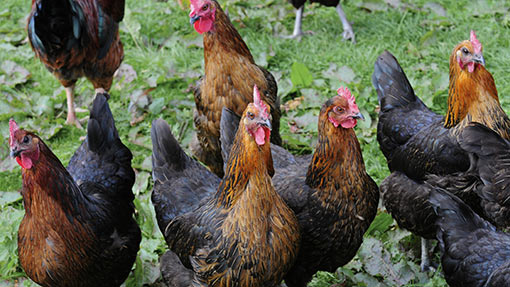Free-range hens are happier, if not safer

Recent media stories claiming that free-range laying hens are less healthy and die earlier than those kept in cages completely miss the point, according to British Free Range Egg Producers Association chairman Roger Gent.
The reports have appeared in several newspapers, including The Times and The Daily Mail, following a debate at the British Science Festival in Birmingham. The Times’ story said free-range hens “suffer more”, while The Daily Mail said they were “least healthy”.
Poultry vet Barry Thorp, of the St David’s Poultry Team, was quoted as saying free-range hens were more likely to pass on disease and to die sooner compared with caged birds.
Victoria Sandilands of Scotland’s Rural College added that mortality rates with free range were about 8-10%, compared with 2-4% for cage birds. They also had more bone fractures.
And RSPCA senior scientific officer Mia Fernyhough had explained how new furnished cages, with perches, nest boxes and scratch areas, were better than conventional cages, which were banned in 2012.
See more: Free range switch boosts egg producer’s performance
But the media reports have been dismissed by BFREPA, which has written to newspaper editors putting the case for free range.
“The reason why nearly half of all eggs sold to British shoppers today are free range is because consumers want the animals producing their food to live a natural, happy life,” said Mr Gent.
“Chickens derive from jungle fowl and are happiest when they are given the environment which allows them to shelter or to range around the land. It’s about choice and freedom – two values that free range is built on.”
“Of course exposing chickens to their natural environment brings risks – just like exposing a human to their natural environment does – but the farmers who look after chickens in this country place hen welfare at the very top of their agenda.
“So let’s get the facts straight. Every farming system in the world has risk and reward, and it’s down to farmers to do what they believe is right for their animals.”
